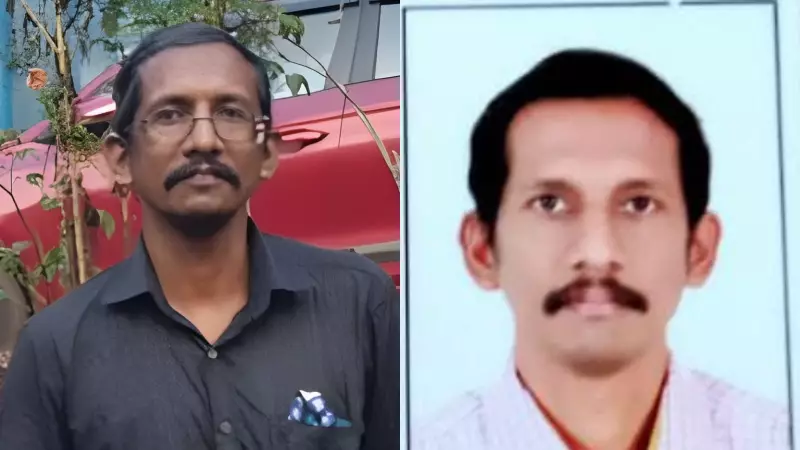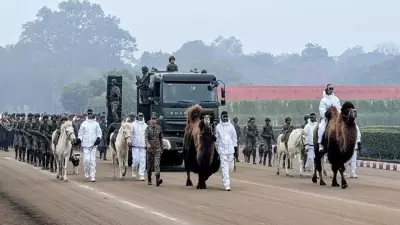
Electoral Roll Revision Crisis: BLO Suicides Spark Nationwide Protests
The Special Intensive Revision (SIR) of electoral rolls faces severe disruption across three Indian states following two tragic suicides and widespread protests by Booth Level Officers (BLOs). Kerala, Tamil Nadu, and Rajasthan are witnessing growing unrest among election officials who cite excessive workload, exhaustion, and unreasonable targets as their primary concerns.
Tragic Deaths Highlight Systemic Pressure
In Kerala, a political storm has erupted following the alleged suicide of BLO Aneesh George, a 44-year-old office attendant at a school. George, who served as the BLO for booth number 18 under Payyanur Assembly seat in Kannur district, was found dead in his house on Sunday. Although no suicide note was recovered, his family and close friends maintain that George was under immense pressure to complete his electoral duties by the December 4 deadline.
The tragedy prompted immediate action from BLOs across Kerala, who boycotted work on Monday in protest against George's death. Various trade unions of state government employees organized demonstrations at the Chief Electoral Officer's office in Thiruvananthapuram and district collectorates, demanding authorities reduce pressure on BLOs and consider postponing the SIR exercise.
Meanwhile, in Rajasthan, another tragedy unfolded when Mukesh Jangid, a 45-year-old government school teacher appointed as BLO, allegedly died by suicide by jumping in front of a running train on Sunday. Unlike the Kerala case, Jangid left a suicide note explicitly stating that extreme work pressure from his supervisor drove him to take the extreme step. The note revealed he had been threatened with suspension if he failed to complete his SIR targets and had been unable to sleep for several days due to stress.
Widespread Protests and Demands
In Tamil Nadu, the situation has escalated with the Federation of Associations of Revenue Employees (FERA) announcing a statewide boycott of the SIR exercise beginning November 18. The organization cited overwhelming workload and unreasonable targets that have left officials juggling multiple assignments simultaneously.
FERA has submitted a detailed representation to the Chief Electoral Officer of Tamil Nadu demanding immediate removal of work pressures causing mental stress among officials. Their demands include:
- Extension of the revision timeline
- Proper training for officials
- Additional staff and volunteers
- Immediate end to midnight review meetings and mandatory holiday work
- Honorarium equivalent to one month's salary for the extra workload
Six officers involved in the exercise confirmed they are simultaneously handling monsoon duties, control room responsibilities, and other mandatory seasonal works alongside the electoral revision. One officer highlighted the dual pressure faced by BLOs: "Either you simplify the process or get an extension... These officers end up facing the heat from the public because of the time frame as well as immense pressure from the government."
Political Reactions and Official Responses
The political response has been significant, with both the CPI(M) and Congress in Kerala demanding postponement of the SIR process until the third week of December, after the completion of local body elections.
However, official reports present a contrasting narrative. Kannur District Collector Arun K Vijayan, who also serves as the district electoral officer, indicated in his report that George was not under any work pressure. The report stated that while 1,065 enumeration forms had been issued to George, only 50 forms remained to be distributed by November 16. The majority had been distributed but not digitally updated.
In Rajasthan, the situation remains tense with Vipin Prakash Sharma, state general secretary of the Akhil Rajasthan Rajya Karmachari Sanyukt Mahasangh, highlighting the constant pressure from state, district collector, and SDM levels on field workers. Sharma emphasized that "quality of data should be prioritized over quantity" and appealed against placing undue pressure on BLOs during SIR.
The Rajasthan Congress has demanded proper investigation and action against those responsible for Jangid's suicide, while Jangid's uncle Satyanarayan Dhangi revealed the teacher had been working non-stop for 12 hours daily, which ultimately forced him to take his life.
As the crisis deepens, all revenue department employees and departmental associations in Tamil Nadu, including noon-meal workers, anganwadi workers, municipal staff, teachers, and supervisors, have joined the boycott against all SIR-related work, potentially bringing the crucial electoral revision process to a standstill.





